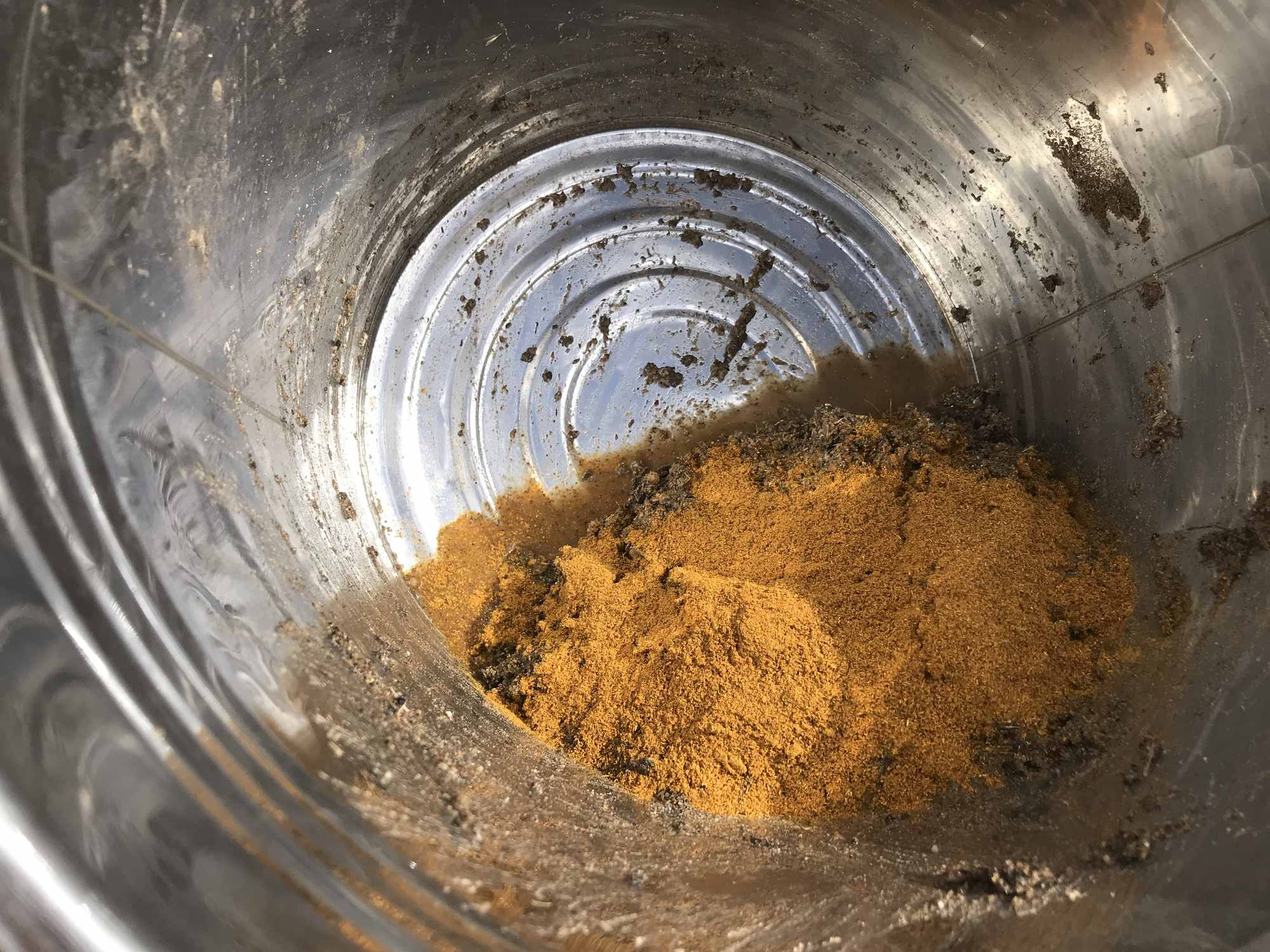
Cayenne Pepper Powdered Ant Repellent Seed Mix
After several seasonal cycles of direct sew planting into large containers and many rounds of nursery pot sewing, I'd learned my lesson that during the warmer months, ants will exfiltrate and devour almost all of the seeds I plant. It's not yet one hundred percent confirmed but I have high confidence from my insect identification research that I'm surrounded by millions of, none-other-than, "seed harvester ants". They look like what's generally referred to as "red ants" however they have distinct methods of biting an anchor center point on the skin, then pivoting to sting in a circular pattern. I've fallen prey to hundreds of such bite/stings so far. Beyond that, they have a distinct color darkness gradient between light and dark red across their body parts which was another indicator.
For me out here, they are the most formidable force to recon with beyond the heat of the desert sun itself. When the two forces combine to make life hell, it's no fun. I've learned to live with the ant invasions, accepting that I'm a guest in their land, not the other way around. I've adapted strategies such as sewing my shorts to a tight fit to keep the bites and stings within a certain range. Though while I've been able to live with their onslaught against me, it's the pilfering of my garden seeds that has taken the biggest toll. By the time I've spent a lot of precious water supply to get seeds sprouting up into the light above the soil surface, I've often discovered that they're no where to be found. I then remember, they must have all by harvested by the seed harvester ants.
After there had been several cycles of plantings that were totally barren, and there was a lag between planting and their disappearance. Finally I learned my lesson in near real time. I had just inadvertently planted a big pot with thousands of big white colored amaranth seeds. Almost as soon as I turned my back on them after covering them and watering them in, and looked back again, the marching line of ants was carrying all of them out to store them in their underground bunkers. It's such a clear memory because I'm used to the barely visible and easy to miss Hopi red dye amaranth seeds which are tiny and black. But this variety stood out at a distance, so the joke was on me. I had foolishly given away a significant portion of my amaranth seed bank to the ants.
I wasn't furious, I just had to laugh at myself a bit and think, well, these ants will be greeted as heroes by their families and tribes, and eventually the seeds they don't eat may someday sprout and live on in the wild. So often it's the feral volunteer seeds that do better, even without any amended soil or watering, than do the plantings in the garden that get all the attention.
I decided after that incident that I'd better rethink my seed starting mix strategy and try to address the problem upstream. I had consolidated all of my "fire powder" mix ingredients into a large glass jar. I had simplified the "fire cider" recipe down to three dried and ground spices: cayenne pepper, turmeric, and ginger in equal parts. I add small amounts to dishes to create a spicy and immune boosting flavoring condiment, and I dilute the powder with water and drink the solution like shots if I feel any form of internal bacterial/viral infection coming on. But it turns out, this mix would also become a workable solution to deter ants from the newly sewn seeds. I simply poured about one cup of the "fire powder" mix into my partially filled bucket of filtered and sifted soil and compost, mixed them together and had a bright orange ant repellent seed starting mix. The results were effective however further testing will be forthcoming to get more details on the results.
While I'd prefer to just have pure cayenne pepper, and avoid the potential that the anti-microbial properties of the turmeric powder might have a potential negative impact on the soil biology, for now I'll have to stick with the mix. In the future I'll set aside cayenne pepper so I can isolate the variables of the experiment.
For now, at least I know, the ants will have to wait until my plants grow to maturity and produce new seeds, at that point, I'll be less concerned about the competition. Plants almost always produce more than enough seeds than any gardener needs to keep regrowing and sustaining their population in the garden.
I'm glad not to be relying on toxic chemical pesticides which wreak havoc on the delicate web of life at all scales. Eventually I'll be growing plenty of cayenne to make it a sustainable input for my health, and for the protection of seedlings from the relentless yet innocent feasts of the seed harvester ants.